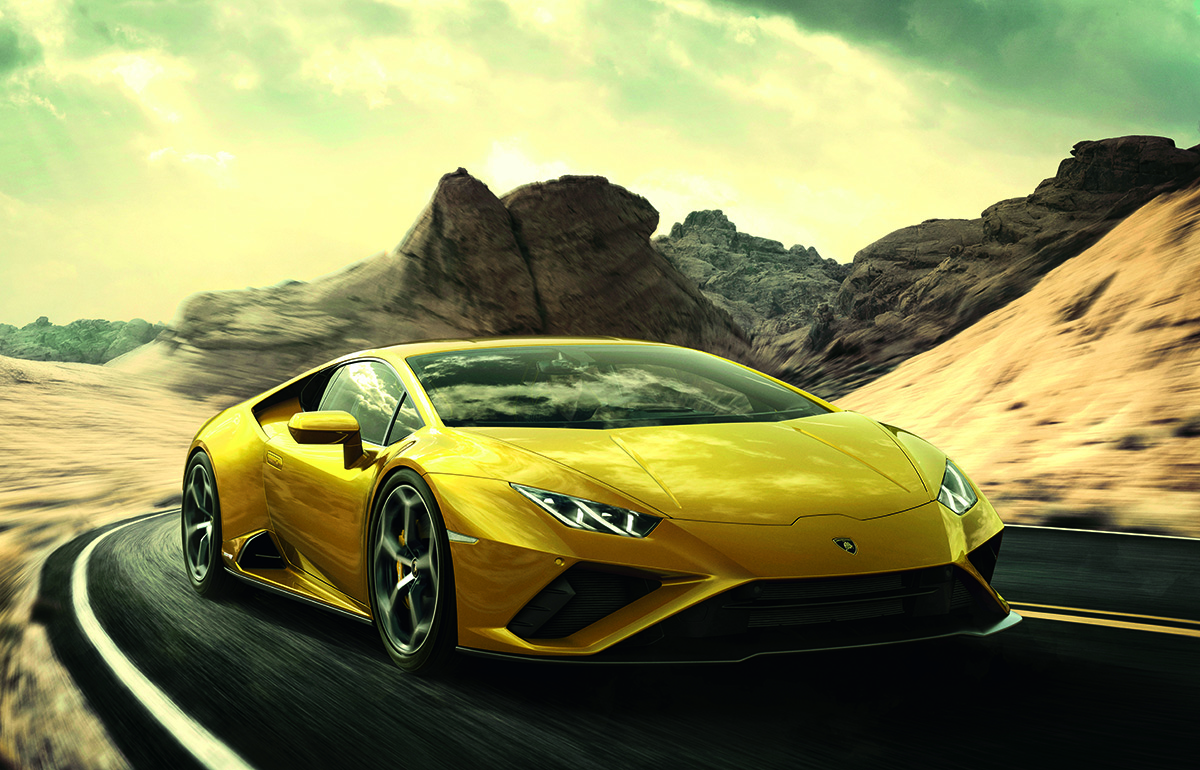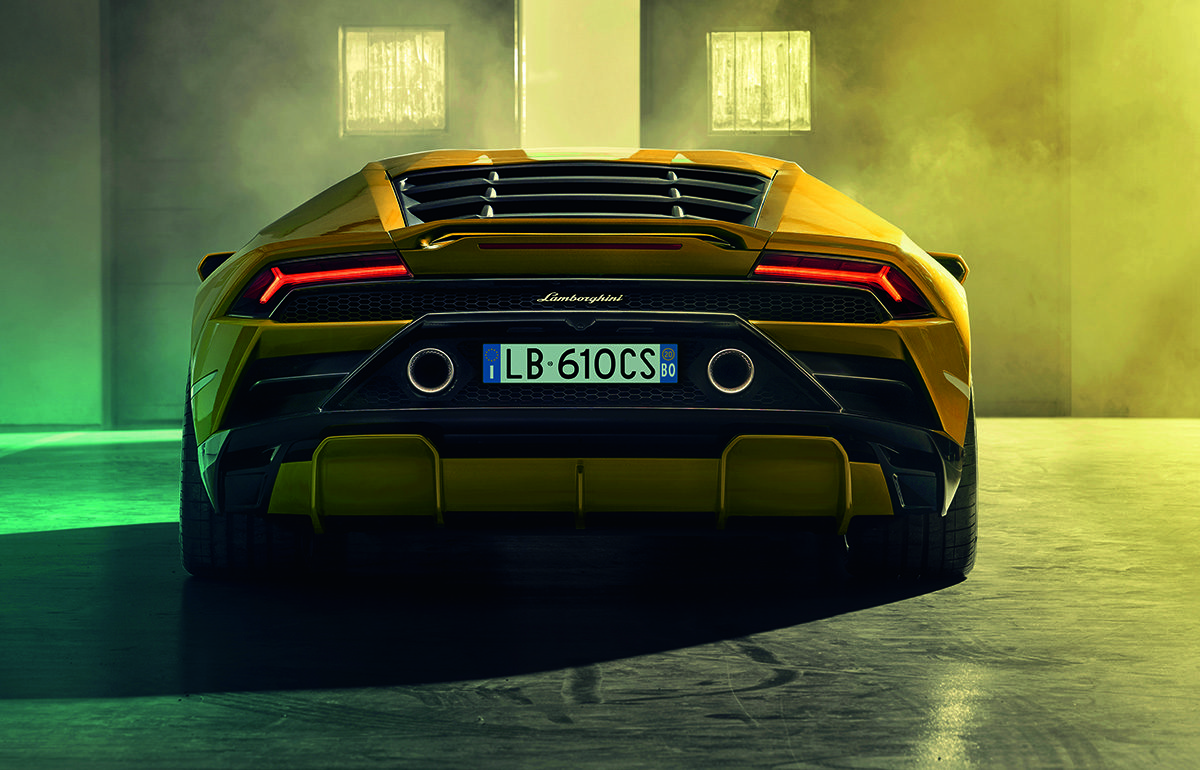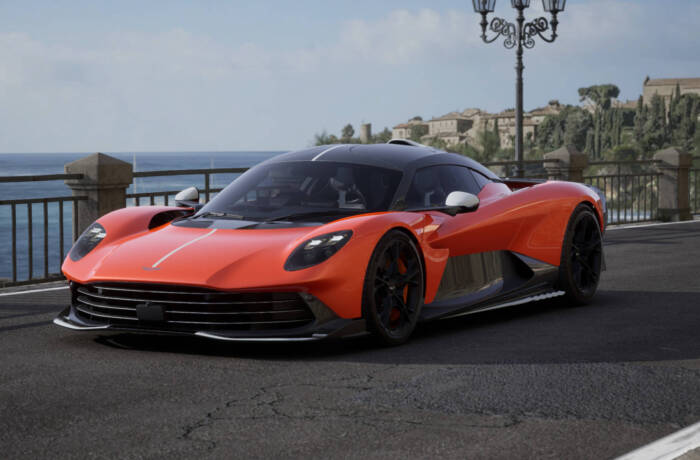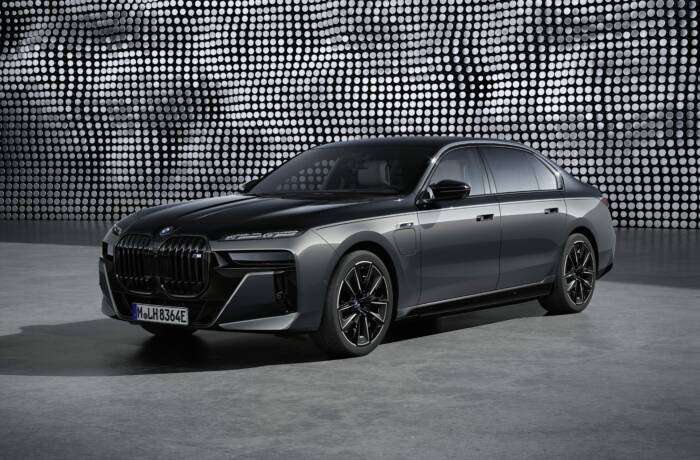
Lamborghini Huracán EVO RWD
In the second part of our supercar series, LUX drives the new and improved Lamborghini Huracán EVO RWD
Amid the current debate about cultural appropriation, we have a theory that many of the best things in life come from cultural mingling – which is not quite the same thing. Anyone who has visited the region of Alto Adige in northern Italy, which has been swapped between France and Austria over the centuries, will understand Italian culture and cuisine combined with Austrian efficiency creating a whole new world of design and lifestyle? Yes, please.
Follow LUX on Instagram: luxthemagazine
We have a theory that the same thing has happened at Lamborghini. This is, on the face of it, the most extrovert and Italian of carmakers. Its logo is a raging bull, created specifically to annoy Enzo Ferrari and his prancing horse. Its cars are not only era-defining design classics (look at the 1960s Miura, which featured in The Italian Job) or the crazy 1980s Countach. They are also, traditionally, loud (visually and aurally), outrageously designed inside, have posing value beyond any other car no matter what the price, and go very fast, if you can handle them.
But this was not all good. Perhaps you wanted something with a soul of a Lamborghini, which didn’t attract a crowd of onlookers every time you drove it. And perhaps you wanted something that you would actually look forward to driving, rather than bracing yourself for a task.
The calming influence on Lamborghini’s hairy-chest nature came in the form of the Volkswagen group, which acquired the company in 1998. Lamborghinis have had a reputation for being better built, more reliable and easier to use since then. But they have also started moving towards the other extreme of becoming efficient. You might have driven the previous model Huracán across Europe, for example, with great satisfaction, but would it have stirred your loins like a previous Lamborghini? The best cultural cocktails are a perfect combination of ingredients, and an alchemy creating something else out of the whole.
Read more: Anne-Pierre d’Albis-Ganem on the importance of championing artists
And this is where the RWD comes in. Lamborghini have taken their current Huracán EVO and taken away the drive from the front wheels, so the previously four-wheel-drive car is just two-wheel drive. They have also reduced the weight, made it more aerodynamically efficient, and, marginally, reduced the power. And they have reduced the price – although that is not likely to be very important to this market.
The reason behind this is to create a car that is not just brilliant on paper, striking to look at and efficient, but to create a car that stirs the soul. The ‘digital’ nature of some of today’s supercars is a reason why some models from 10 or 20 years ago have been going up in value. This Lamborghini is a more analogue car.

The difference is evident even in the first low-speed corner. You are connected to the steering in a way you are not with its 4WD sibling. Approaching some higher speed corners once out of town, you feel a far clearer weight transfer to the back of the car and, on exiting the corner, you feel your acceleration is pushing the rear wheels out and helping you around the corner. And the steering is not interfered with by any tugging from power going to the front wheels at the same time as you are trying to steer. It sounds a little, but it means a lot. Suddenly, you are driving the car, rather than overseeing something that more or less drives itself.
The Huracán is old school in that it features a V10 engine, with no help from turbochargers or an electric motor. And given that typically these cars are driven short distances over their lifetimes, it will probably emit less CO2 than the average family car. Which is not to say that cars like these save the planet any more than they are not guilty of sacrificing it either.
Lecture over, on to the all-important Lamborghini feature of looks. Ours came in a spiffing shade of matt purple. It garnered stares from bystanders rather than a crowd of them like some Lambo models. If it’s attention you crave, better get an Aventador, this car’s big sister. If it’s driving pleasure, buy one of these.
It gets one of the highest ratings of any car we have ever tested. And if it had even more feedback to the steering, and even more dramatic looks (we like that kind of thing), it would receive a perfect 20.
LUX rating: 19.5/20
Find out more: lamborghini.com
This article originally appeared in the Autumn/Winter 2020/2021 Issue.








